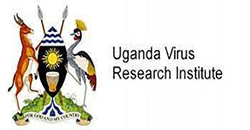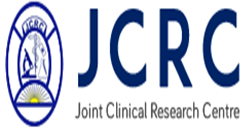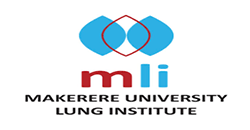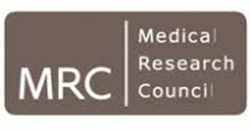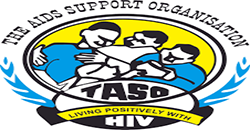SERVICES

Research
Since 2021 when it first opened its doors to clinical research, Strengthening Institutional Capacity for Research Administration (SICRA) has scientists and partners have registered noticeable contributions to scientific research in Uganda. We have been able to participate in landmark clinical trials including COVID-19 vaccine trials, COVID-19 therapeutic clinical trials and epidemiological studies.
Capacity Building
One of SICRA’s goals is to build the capacity of institutions and researchers in low- and middle-income countries (LMICs) by establishing the necessary infrastructure for research administration, grantsmanship, and scientific writing through skills development training and mentorship. The SICRA training model is intentionally flexible providing both short- and long-term training and mentorship...Research
Since 2021 when it first opened its doors to clinical research, Strengthening Institutional Capacity for Research Administration (SICRA) has scientists and partners have registered noticeable contributions to scientific research in Uganda. We have been able to participate in landmark clinical trials including COVID-19 vaccine trials, COVID-19 therapeutic clinical trials and epidemiological studies.Clinical Trials
On going
-
1. A Multicenter, Adaptive, Randomized, Blinded Controlled Trial of the Safety and Efficacy of Investigational Therapeutics for Hospitalized Patients with COVID-19 (INSIGHT 014) also known as Therapeutics for In patients with Covid-19 (TICO)
TICO (Therapeutics for Inpatients with COVID-19) is a master protocol to evaluate the safety and efficacy of multiple investigational agents aimed at modifying the host immune response to severe acute respiratory syndrome coronavirus 2 (SARS-CoV-2) infection, or directly enhancing viral control in order to limit disease progression.
Trials within this protocol are adaptive, randomized, blinded and initially placebo-controlled. The protocol is for a phase III randomized, blinded, controlled platform trial that allows investigational agents to be added and dropped during the course of the study for efficient testing of new agents against control (i.e., placebo + SOC) within the same trial infrastructure. When more than one agent is being tested concurrently, participants are randomly allocated across agents (as well as between the agent and its placebo) so the same control group will be used, when feasible. Randomization is stratified by study site pharmacy and disease severity.
The primary endpoint is the time from randomization to sustained recovery, defined as being discharged from the index hospitalization, followed by being alive and home for 14 consecutive days prior to Day 90. The definition of home is operationalized as the level of residence or facility where the participant was residing prior to hospital admission leading to enrollment in this protocol.
The study population consists of inpatient adults (≥18 years) who have had COVID-19 symptoms ≤ 12 days.
To date at least 5 monoclonal antibodies LY3819253, VIR-7831, BRII-196/BRII-198, MP0420 and AZD7442) and one anti-viral agent PF-07304814 have been evaluated under the TICO protocol across the entire INSIGHT clinical trials network.
Several publications have come out of this protocol but the three where SICRA @ LRRH have contributed include:
- ACTIV-3-Therapeutics for Inpatients with COVID-19 (TICO) Study Group. Tixagevimab-cilgavimab for treatment of patients hospitalised with COVID-19: a randomised, double-blind, phase 3 trial. Lancet Respir Med. 2022 Jul 8. pii: S2213-2600(22)00215-6. doi: 10.1016/S2213-2600(22)00215-6.
- ACTIV-3/TICO Study Group*. Efficacy and Safety of Ensovibep for Adults Hospitalized With COVID-19 : A Randomized Controlled Trial. Ann Intern Med. 2022 Aug 9. doi: 10.7326/M22-1503.
- ACTIV-3/Therapeutics for Inpatients with COVID-19 (TICO) Study Group. Efficacy and safety of two neutralising monoclonal antibody therapies, sotrovimab and BRII-196 plus BRII-198, for adults hospitalised with COVID-19 (TICO): a randomised controlled trial. Lancet Infect Dis. 2022 May;22(5):622-635. doi: 10.1016/S1473-3099(21)00751-9.
-
2. SARS-CoV-2 vaccination strategies in previously hospitalized and recovered COVID-19 patients also known as Vaccination for Recovered Inpatients with COVID-19 (VATICO)
The choice of Moderna or Pfizer vaccine is determined based on availability at the site. The choice is individual, although participants vaccinated twice should receive the same type of vaccine when receiving two injections. The study's objective is to evaluate if the vaccine is best administered early or deferred after recovery, and whether one injection provides comparable immune response to a two injection course of vaccination. Participants remain blinded to the interventions received in the ACTIV-3/TICO study, however allocation to the timing of vaccination and to one or two vaccinations in this (VATICO) study is not blinded.
Participants are randomized as part of a 2x2 factorial design to one of four groups:
- Immediate versus 12-week deferral of first dose administration, and also
- One dose only, versus two doses to be given 4 weeks apart
The primary objectives of this study are:
- To estimate the difference in neutralizing antibody (NAb) response to the mRNA vaccine from baseline to Week 48 among participants vaccinated early versus deferred, and
- To estimate the difference in NAb response to this vaccine among participants vaccinated once versus twice.
Publications
Lessons from an international trial evaluating vaccination strategies for recovered inpatients with COVID-19 (VATICO). Med (N Y) 2022 Aug 12;3(8):531-537. doi: 10.1016/j.medj.2022.07.003.
-
3. Study of Monovalent and Bivalent Recombinant Protein Vaccines Against COVID-19 in Adults 18 Years of Age and Older (VAT00008) also known as SANOFI VAT00008
The purpose of this Phase III study is to assess the efficacy, safety, and immunogenicity of two CoV2 preS dTM-AS03 vaccines (monovalent and bivalent) as part of primary series vaccinations in a multi-stage approach, as well as a booster injection of a CoV2 preS dTM-AS03 vaccine, in adults 18 years of age and older.
A total of approximately 21 046 participants are planned to be enrolled (5080 per study intervention group in Stage 1 and 5443 per study intervention group in Stage 2).
Initial, double-blind, primary series study design is planned for 365 days post-last Initial injection (ie, approximately 386 days total) for each participant.
Based on decisions of the Study Oversight Group, Stage 1 participants will be invited to participate in an unblinded Crossover / Booster study design with duration as follows:
For participants who initially received vaccine: 12 months post-booster (ie, approximately 18 to 24 months)
For participants who initially received placebo: ≥ 4 months post-last dose of the primary series + 6 months post-booster (ie, approximately 22 to 28 months)
For participants who do not consent to continue in the unblinded Crossover / Booster part of the study, all study procedures will be stopped and participants will be discontinued from the study.
Upcoming Studies
- 1. Oxygen requirements and approaches to respiratory support in patients with COVID-19 in low- and middle-income countries: a WHO study. The primary aim of this observational study is to describe oxygen use, requirements and respiratory support interventions at the facility level in LMICs. This information will be used to further inform the platform trial.
- 2. A Global Multi-center, Randomized, Blinded, Placebo-controlled Phase 2/3 Clinical Study to Evaluate the Efficacy, Safety and Immunogenicity of SARS-CoV-2 mRNA Vaccine (LVRNA009) for the Prevention of COVID-19 in Participants Aged 18 Years and Older (PENDING ETHICS & REGULATORY APPROVAL)
- 3. A Phase 3, multicenter, randomized, double -blind, 48 24-week study of the clinical and antiviral effect of S -217622 compared with placebo in non -hospitalized high risk participants with COVID -19 (PENDIG ETHICS & REGULATORY APPROVALS)
- 4. A Phase 2/3, Multicenter, Open-label, Multicohort Study Evaluating Pharmacokinetics (PK), Safety, and Efficacy of Cobicistat-boosted Atazanavir (ATV/co) or Cobicistat-boosted Darunavir (DRV/co) and Emtricitabine/Tenofovir Alafenamide (F/TAF) in HIV-1 Infected, Virologically Suppressed Pediatric Participants (PENDING ETHICS & REGULATORY APPROVALS)
Capacity Building
One of SICRA’s goals is to build the capacity of institutions and researchers in low- and middle-income countries (LMICs) by establishing the necessary infrastructure for research administration, grantsmanship, and scientific writing through skills development training and mentorship. The SICRA training model is intentionally flexible providing both short- and long-term training and mentorship opportunities in consideration of individual and institutional context-specific needs. Trainees are supported to develop research concepts, write protocols, conduct research, and write manuscripts and grant applications independently or in collaboration with researchers from high income countries.
Periodically, SICRA in collaboration with other partners conducts two types of short term skill enhancement trainings namely, grants writing workshops, and scientific/Manuscript training workshops. To date, SICRA has successfully trained over 310 individuals in grant writing and scientist writing; over 60 researchers in Good Clinical Practice (GCP); and over 20 research administrators in the pre- and post-award processes involved in successfully winning a grant.
With more than 5 years demonstrated experience in providing these sort of skill based practical training, SICRA welcomes the opportunity to partner with stakeholders to share our expertise and experience to strengthen individual and institutional capacity for research in low- and middle- income countries (LMICs).

